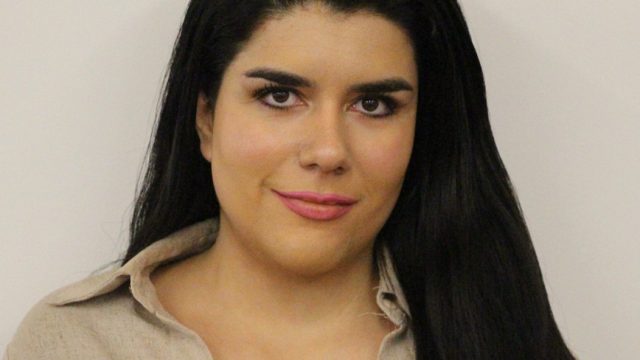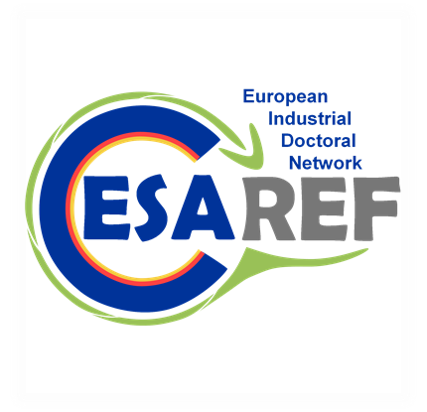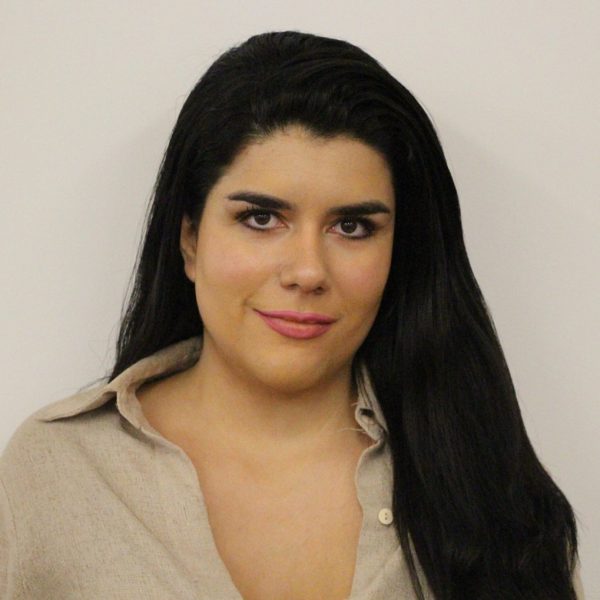
Get to know : Paula Campos de Oliveira

CESAREF Doctoral Candidate
How would you describe yourself in two sentences?
I am a PhD student with a keen curiosity about the world. My favourite activity is checking the news, from the latest gossip to the most recent scientific breakthroughs.
What are you currently working on?
I am working on a scientific project as part of my doctoral studies, focusing on the microstructural characterisation of ceramic materials applied in the aerospace industry. Contributing to the design of more sustainable aircraft is thrilling to me, as I am still amazed by the fact that humans created such a huge machine to fly.
Did you always want to work in science? How were you introduced to it?
To be honest, no. Growing up, I always thought that being a scientist was something out of reach, reserved only for geniuses. During the last year of high school, I felt I had to choose a university degree because it was the “natural path” to follow. However, I had no idea what course to pursue. So, I decided to take a look at the different courses of UFMG, a university in Brazil and I was mesmerized by a picture of a steelmaking ladle in operation. Because of this image, I chose to study Metallurgical Engineering. Thirteen years later, by a stroke of fate, I am still immersed in the field of materials science.
Could you briefly describe your academic/professional career?
I hold both a Bachelor’s and a Master’s degree in Metallurgical Engineering/Materials Science from the Universidade Federal de Minas Gerais (UFMG) in Brazil. Throughout my university years, I used advanced characterisation techniques, such as synchrotron tomography and transmission microscopy, to characterise diverse materials like oil reservoir rocks, composites, and metallic alloys. Additionally, I had the opportunity to study abroad for a year at the Université de Poitiers in France. Alongside my academic pursuits, I worked as a consultant for mining and education companies. I also contributed to a social project as a teacher in public schools in Brazil, obtaining another degree in Mathematics from Unopar. More recently, I earned a Master of Business Administration (MBA) degree in Project Management from the Universidade de São Paulo (USP). I am currently working on my PhD at Safran, in France, and afterwards I will move to Germany to work at BAM within the CESAREF consortium.
Why is it relevant to talk about gender equality in science?
Because a woman should not feel oppressed to follow her dreams, constrained by societal expectations that dictate where she belongs. Support for women in research is essential since many potential talents are lost due to gender prejudice. A diverse work team is crucial for the progress of science, as individuals with different backgrounds and expertise contribute a wide range of approaches to problem-solving, leading to innovative solutions.
In your career, did you face problems linked to your gender? What progress have you seen on gender equality in your life and work?
Yes, I was told in job interviews that I was too feminine to work with steelmaking, or questioned if I was planning to give birth soon. Besides facing such discriminatory remarks, I believe that male-dominated workplaces can induce feelings of marginalization, even if it is implicit. However, I have noticed progress regarding girls wanting to pursue a scientific career. When I was in school, most of my female classmates, including myself, viewed acting in science as something otherworldly. Nonetheless, while working as a teacher at public elementary schools, I could see that the younger generation is enthusiastic about doing research, even if these girls come from disadvantaged backgrounds.
Who is your woman scientist inspiration?
I am lucky to work with inspiring women as my supervisors, such as Dr. Wen Zhang for my PhD thesis, and Dr. Augusta Cerceau for my Master’s degree. They provide me not only with valuable scientific advice, but also emotional support and intelligence that is essential for women acting in science.
What is the most motivating/exciting aspect of your job?
My primary motivation in every project I participate in is to contribute to something that benefits society, even if it is just a baby step. I would not have the incentive to conduct research if I could not visualise its purpose. Besides that, the field of science has provided me with opportunities to visit places and meet people from all over the world, fulfilling a dream I have always had.
What message could you give to the young generation?
If you want to follow a career in science, you must work hard, but don’t forget to spend valuable time with your loved ones.





